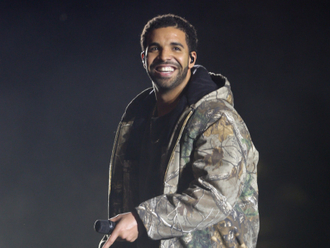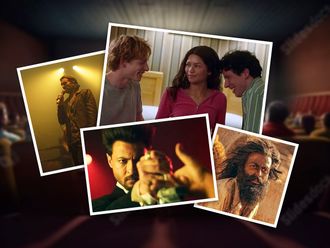
Despite a string of summertime flops, Hollywood is expected to have a banner year at the US box office, coming in just shy of $11 billion (Dh40 billion), the largest annual take ever. But because of higher ticket prices, actual attendance at North American theatres remained flat after a decade of decline.
With the current US box-office tally nearly one per cent ahead of last year at this time, 2013 could surpass 2012’s overall haul of $10.8 billion by more than $100 million, according to box-office tracker Rentrak.
High-profile flops such as The Lone Ranger, After Earth, R.I.P.D. and Turbo were offset by mega-hits like Fast & Furious 6 and Iron Man 3, which consistently filled theatres last summer.
More recently, Warner Bros’ space epic Gravity has earned $254 million in the US, Lionsgate’s sci-fi sequel The Hunger Games: Catching Fire has grossed $378 million and fantasy prequel The Hobbit: The Desolation of Smaug has brought in $150 million for Warner Bros.
A strong holiday slate is also boosting the year’s box-office total. “There has virtually been every kind of genre of film available,” said Rentrak box-office analyst Paul Dergarabedian. “You have blockbusters like Hobbit and esoteric, challenging films like Nebraska, Dallas Buyers Club and Mandela: Long Walk to Freedom. All of these films get people to the movies.”
Entertainment available on countless portable devices continues to threaten multiplex attendance, as do advanced home theatre systems and video-on-demand services offering original premium programming and feature films the same day as their theatrical release.
But Hollywood is fighting back with the premium multiplex experience. Movie attendance may be tepid, but the audience is willing to pay more for theatre extras, which keep the bottom line growing, even as admissions remain flat.
“Theatres are offering Imax, bigger chairs, dine-in options and alcohol,” said Don Harris, head of distribution at Paramount. “It’s kind of like the difference between staying at a Hilton or a Ritz Carlton. I think what you saw this year was a growth in a segment of the audience that isn’t as worried about the price of a movie ticket as they are interested in the out-of-home premium experience. I think you’re going to see that going forward.”
And with all of the bells and whistles now offered at theatres, movie-going is still one of the least expensive ways to be entertained, compared to concerts, sporting events and live theatre,” notes Richie Fay, Lionsgate’s president of domestic distribution. (So far this year, the average cost of a movie ticket in North America has been $8.05, according to Nato.)
Social media has also helped boost sales, Fay observed, with Twitter and other services providing a powerful marketing tool for studios and a faster way for fans to spread that all-important word of mouth. “People don’t have to wait a day for a print story anymore. It’s an important part of the growth of the industry.”
Studios are hoping to continue that growth in 2014 with such anticipated releases as Captain America: The Winter Soldier, The Amazing Spider-Man 2, X-Men: Days of Future Past and Transformers: Age of Extinction, Dumb and Dumber To, The Hunger Games: Mockingjay — Part 1 and The Hobbit: There and Back Again.
“I think the fact that attendance is at least holding its own is impressive, given the number of other media options in the mix,” said Rentrak’s Dergarabedian. “Going out to the movie theatre is clearly as attractive, relevant and viable as ever with audiences.”
Foreign receipts are typically two to three times higher than US earnings. So fan-driven hits like The Hangover Part III, which grossed $112.2 million in North America, are expected to earn more than double their domestic takes overseas.












